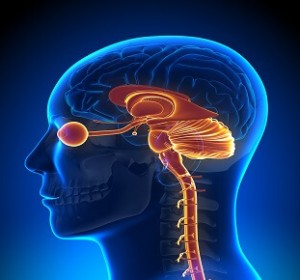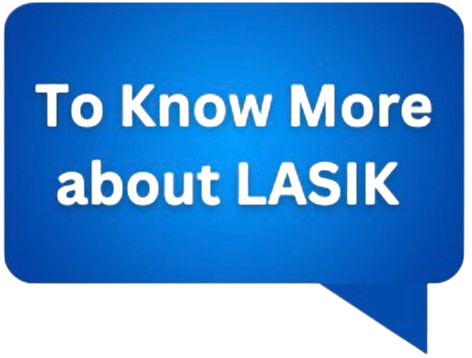Neuro Ophthalmology is a highly specialized branch of eye care that bridges the gap between neurology and ophthalmology. It deals with visual disorders related to the nervous system, including the brain, optic nerves, and eye muscles. Unlike routine eye problems that affect only the eyes, neuro-ophthalmic disorders often arise due to underlying neurological conditions. Early diagnosis and treatment are crucial, as these conditions can significantly affect vision, balance, and overall quality of life.
At Vision Eye Centre, patients are guided by experienced Neuro Ophthalmology Doctor in Delhi at Vision Eye Centre who combine advanced diagnostics with personalized care to manage even the most complex neuro-visual disorders.
What is Neuro Ophthalmology?
Neuro Ophthalmology is a sub-specialty that combines the knowledge of neurology and ophthalmology to address visual problems linked to the nervous system. It focuses on disorders that affect the optic nerve, eye movements, and the brain’s ability to process vision.
This field deals with complex conditions where vision loss or double vision may not be caused by typical eye diseases but by issues such as brain tumors, strokes, multiple sclerosis, or other neurological disorders. Neuro Ophthalmology specialists use advanced imaging, visual field testing, and detailed examinations to detect these conditions early and provide effective treatment plans tailored to each patient.
Symptoms of Neuro Visual Disorders
Neuro-visual disorders can affect both eyesight and overall brain function. Since these conditions are complex, the symptoms are often more than just blurred vision. Recognizing early warning signs is very important, as timely intervention can prevent long-term damage. Common symptoms include:
-
Sudden or gradual vision loss that cannot be explained by regular eye problems.
-
Double vision (seeing two images of one object) due to nerve or muscle weakness.
-
Drooping eyelids (Ptosis) caused by nerve or muscle dysfunction.
-
Loss of peripheral vision or blind spots that interfere with daily activities.
-
Abnormal pupil reactions such as unequal pupil sizes or delayed response to light.
-
Headaches, dizziness, or balance problems associated with visual disturbances.
-
Difficulty reading or focusing due to poor coordination between the eyes and brain.
If any of these symptoms are ignored, they may indicate deeper neurological problems. That is why immediate consultation with a specialist is recommended.
Conditions Treated Under Neuro Ophthalmology
Neuro Ophthalmology covers a wide range of disorders that affect the optic nerve, eye muscles, and pathways connecting the eyes to the brain. Some of the key conditions include:
-
Optic Neuritis
-
Ischemic Optic Neuropathy
-
Papilledema
-
Visual Field Defects
-
Cranial Nerve Palsies
Treatment Options for Neuro Ophthalmology
Treatment in neuro ophthalmology depends on the underlying cause of the condition. Since these disorders are closely linked to the brain and nervous system, therapy often requires a multi-disciplinary approach involving eye specialists, neurologists, and sometimes neurosurgeons. Common treatment options include:
-
Medications: Steroids and immune-modulating drugs are used for conditions like optic neuritis or multiple sclerosis-related vision problems.
-
Surgical Interventions: Procedures may be needed for conditions such as brain tumors, cranial nerve palsies, or severe papilledema.
-
Prism Glasses: For patients experiencing double vision, prisms can help realign vision and reduce strain.
- Vision Therapy: Specialized exercises and rehabilitation techniques can help patients adapt to visual field loss or eye coordination issues.
-
Lifestyle and Supportive Care: Guidance on diet, regular eye check-ups, and neurological follow-ups are often part of long-term care.
Treatment is highly individualized, as no two patients with neuro-visual disorders have the exact same requirements.
Benefits of Neuro Ophthalmology Treatment
Receiving timely neuro ophthalmology care can dramatically improve both vision and quality of life. Some of the key benefits include:
-
Early Diagnosis of Serious Conditions: Many brain-related disorders are first detected through visual symptoms, leading to faster treatment.
-
Restoration of Vision: With appropriate care, partial or complete vision recovery is possible in certain conditions.
-
Prevention of Permanent Blindness: Early intervention helps control damage to the optic nerve and brain pathways.
-
Improved Daily Functioning: Correcting double vision, drooping eyelids, or field defects makes routine activities easier.
-
Holistic Management: Since care involves both neurological and ophthalmic expertise, patients get complete, well-rounded treatment.
-
Better Long-Term Health Outcomes: Addressing both vision and brain health ensures better stability for the future.
Why Choose Vision Eye Centre for Neuro Ophthalmology Treatment?
When dealing with complex neuro-visual disorders, expertise and advanced technology make all the difference. Vision Eye Centre is a trusted destination for patients seeking comprehensive neuro ophthalmology care in Delhi. The centre brings together highly skilled specialists who combine neurological knowledge with ophthalmic excellence to deliver accurate diagnosis and effective treatments.
What sets Vision Eye Centre apart is its use of advanced imaging systems, visual field analyzers, and optic nerve diagnostic tools, ensuring precision in every case. The team focuses on personalized treatment plans that address not only the symptoms but also the underlying neurological causes. For patients looking for the best Neuro Ophthalmologist in Delhi, Vision Eye Centre is known for its patient-centric approach, modern infrastructure, and successful treatment outcomes.
Frequently Asked Questions
1. What is neuro ophthalmology?
Neuro ophthalmology is a super-specialty that combines neurology and ophthalmology to treat vision problems caused by brain, nerve, or muscle disorders.
2. When should I visit a neuro ophthalmologist?
You should consult a specialist if you experience sudden vision loss, double vision, drooping eyelids, visual field loss, or unexplained headaches with eye problems.
3. What tests are done in neuro ophthalmology?
Common tests include MRI scans, visual field analysis, optic nerve imaging, and pupil reaction tests to detect the cause of neuro-visual symptoms.
4. Can neuro ophthalmology treatment restore normal vision?
In many cases, yes. Conditions like optic neuritis, cranial nerve palsies, or papilledema can improve with early treatment, though recovery depends on severity.
5. Are neuro-visual disorders permanent?
Not always. Some conditions are reversible if detected early, while others may require long-term management to prevent progression.
6. What is the difference between an ophthalmologist and a neuro ophthalmologist?
An ophthalmologist treats common eye problems, while a neuro ophthalmologist specializes in vision issues related to the nervous system and brain.
For more information about Neuro Ophthalmology Doctor in Delhi | Neuro Ophthalmologist, please call at
+919711004422 or click here for free advice.


